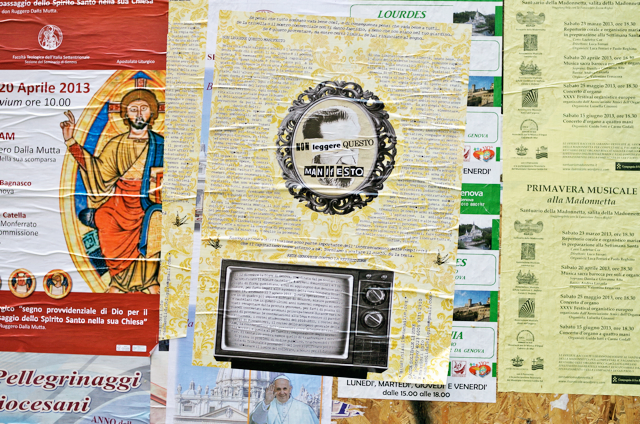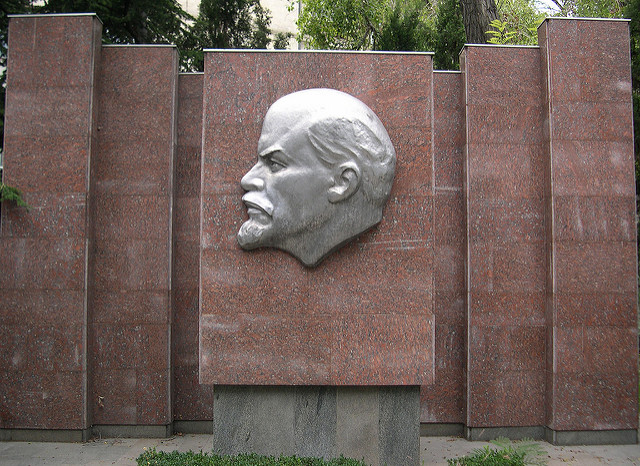Don’t believe the hype. Just because the left isn’t in power doesn’t mean its ideologies are dead. Anti-capitalism, for example, is everywhere, including on the right, or what Europeans call “populist” parties, which deliberately mix a little bit of red with their brown.”National Socialism,” as it was called, is a perfectly-named example, despite the Nazis’ former ties to big business.
In today’s Italy, the most popular proponent of this mix is Beppe Grillo’s Five Star Movement. At least by parliamentary standards, where it holds the most seats amongst the country’s opposition parties. Counting both anarchists, environmentalists and a broad swath of conservatives, (including neofascists) in its ranks, when it comes to Italian anti-market politics, 5MS holds the most legislative clout in Rome.
Don’t let Grillo’s electoral success fool you. As most observers of the country’s political scene would contend, anti-capitalism remains the domain of the left. Whether it’s Italy’s remaining communist parties, or its longstanding autonomist and anarchist communities, populism offers a very limited critique of the market in comparison. It’s more about providing a platform for grievances with capitalism’s excesses, than it is about working towards its termination.
The following flyer translation is an example of the leftwing version. Betraying the influence of Marxist critical theory, it’s both thoughtful and aggressive, reflecting ongoing attempts to map philosophical anti-capitalism, typical of the Cold War period, to today’s economic crisis. The design is similarly retro, alluding to the 1980s, without looking necessarily dated. It was found in Genoa’s port area, last April.
****
If you think that, after all, everything is ok, and you think that it’s ok for everybody…
If the auger, or the monstrous shopping center don’t bother you, unless they’re in your garden…
If it’s right to protest, but within certain limits… If you have given up your dream…
DON’T READ THIS POSTER
In real life money matters, or (subservience) to those who have it. This is power, this is the essence of capitalistic society. The more this society is strong, the more it can deploy the forces to preserve itself: from one side, by means of reassurance and social sedation, from the other, by means of repression of any form of opposition, to achieve its targets. Every reform regarding work, every intervention on the environment, every regulation regarding social life follows the line of accumulation and of maintenance by the few to the detriment of the many.
Those who are opposed to environmental degradation, to a life governed by work timing, to relations based on interests, that is, to a more and more frustrating and inhuman life, has to deal with a cruel, repressive system that strengthens (itself) by by isolating its critics.
Media tell us that great works, commercial centers, racial laws, “safe” stadiums are necessary, that workers sacrifices are necessary, that we are not warmongers, but good guardians of democracy. Many of us believe that this is untrue; therefore we resist and counterattack.
And then democracy shows its real face and dusts off, tellingly, laws of the Fascist era. Misrepresentation, resistance, interruption of public services, devastation and robbery, illegal immigration are turned repeatedly denounced, with the aim of undermining the coherence of people not resigned to intimidation, or, better, with the promise of limited freedom. With the help of modern technologies, allegedly representing neutrality (sic), and the direction of forensic police, any (photograph ) interpreted by a police faction, can be chosen to pin a wide range of hypothetical crimes, from farting in a public place, to subversive association; at Digos discretion, servile witness (are available for) any ambitious attorney on duty. The strategy is simple, elementary, “Scolastico”!
It takes the tones of persecution: (the) lowering and widening of the range of violations in order to charge, as individuals or groups, comrades who actively expose themselves to hinder the advance, threatened with years and decades of imprisonment in order to isolate the more resolute (rebellious) subjects.
Repression doesn’t have any scruples, it arms itself with every necessary instrument in order to save the profits, and nothing else. They want to make business and get rich, undisturbed.
To defend ourselves and counterattack, to be the sand in the mechanisms of this disgusting octopus, we need to equip ourselves, too: our weapons will be presence, agitation, (and) solidarity.
(Providing support for) actions and demonstrations, being present at trials, being informed and informing, creating nets and connections, assisting prisoners, doing everything we can to free everyone and, finally, win.
Resignation and disillusion are important part of the connivance that capitalism weaves. Let’s go back (and continue) climbing towards the sky. Head(s) up.
GENOA NET AGAINST REPRESSION
On 12th of December Genoa Digos, headed by the public prosecutor Scolastico, has (ordered) 11 preventive injunctions, 11 house arrests and 7 orders to appear daily at the local police station, and, in addition, two denunciations without any measure, for events related to the evacuation of occupied house Giustiniani 19, on 17th of August 2012.
This operation is part of a wider framework of denunciations and preventive injunctions that in recent years several comrades have received from the Genoa public prosecutor office, in relation to events that happened on the (city’s) streets. These events occurred mostly during demonstrations: the protests against Northern League and against security measures, (as well as) student demonstrations in 2010-2011, Fincantieri workers demonstrations, FIOM general strike demonstrations, protests against Trenitalia CEO Moretti, and against public prosecutor Caselli, responsible for the NOTAV imprisonment. It seems (to be) an attempt to turn these protests into public order problems, transferring them into a courtroom and voiding them of their political meaning, by lowing the limits of the state’s tolerance, (almost) as (though it were) a warning (about) the future.
Translated from the Italian by Giulia Pace. Introduction and photograph courtesy of Joel Schalit.





